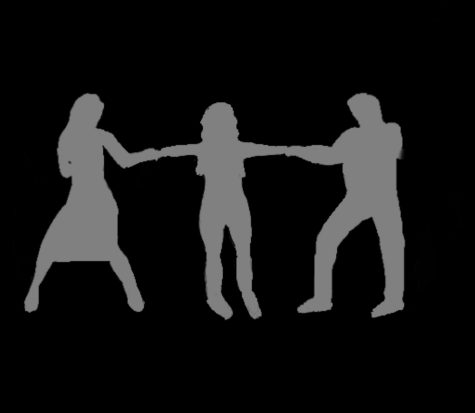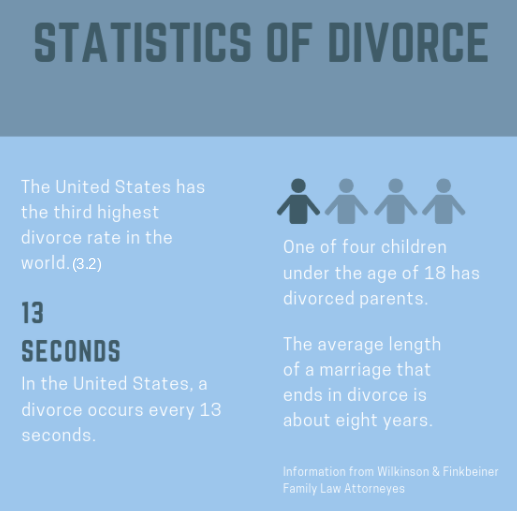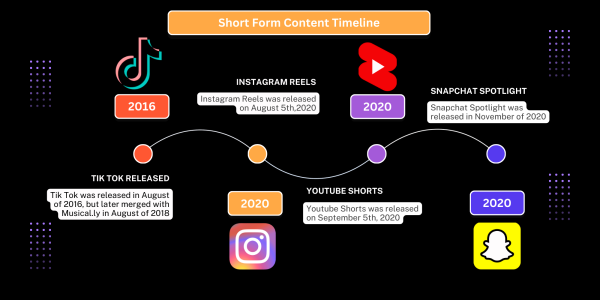Students Behind the Separation: The Effects of Divorce
Almost 40% of marriages end in divorce, according to Time magazine. While this statistic disproves a near-universal misconception that half of all marriages end in divorce, many rightly perceive divorce as fairly common. As reported by Psychology Today, people incorrectly assume that divorce has become normalized, and therefore, has less of an impact on the children from these unsuccessful marriages. However, divorce affects many LHS students and their families in both negative and positive ways.
Senior Cade Apton was 8 years old when his parents filed for divorce. As his mother returned to work and his father moved out of the house, their family structure altered drastically. Apton said he has not received communication from his father since right after the divorce.
He recalled that his young age fostered an ignorance to the social cues in the house. As a result, the split was more surprising to him. Although Apton was upset, he tended to mimic the behavior of his older siblings, who better comprehended the situation.
“I couldn’t really understand the complexities of losing a parent or something as big as that in life. It hits you intrinsically no matter what,” Apton remarked.
The process of his parents’ divorce took slightly over a year to finalize, and he said it almost required separate attorneys for each of his siblings to negotiate visitation terms.
Apton stressed the importance of having some sort of outlet when dealing with a divorce or other challenging times. As a travel soccer player, Apton has utilized the sport as a way to relieve his stress and to cope with the situation.
Another option for relief is confiding in a parent, teacher, counselor or friend “if you have someone in your corner, which you always do,” Apton commented.
He said he relied on his sister for support because they were experiencing similar feelings.
Junior Chloe Frecking depended on her grandparents after her parents’ divorce, which occurred in 2013 when she was 9 years old. Driving the children between her parents’ two houses, her grandma took care of them when there were difficulties. For example, Frecking stayed with her grandma in March and April this year because both of her parents needed to work during the pandemic.
Frecking expressed that she was relieved after the divorce: “It was a lot more peaceful. I had to mature a lot faster because I was the other parent in the house. Because I’m the oldest, that’s just how it worked.”
However, the new living arrangement was arduous for Frecking and her siblings. Unable to recall specific details, she explained how she suppressed a portion of her childhood due to the divorce.
Additionally, Frecking mentioned the issue of traveling between her homes and sometimes forgetting her belongings, especially when her father lived in Wisconsin. She also dislikes dividing her clothes across two locations.
Mrs. Samantha Avila, an LHS social worker, emphasized that one of the main effects of divorce on students is their ability to trust others. Since many do not possess a parental example, they fear that their relationships will lack stability too.
Frecking could relate to this: “I was never taught to rely on anyone because things can change in a split second, like with [my parents’] divorce.”
Looking at the positive side, she believes that the divorce has established easier circumstances for Frecking and her sisters than before in many ways. Appreciating the ability to design two bedrooms, she was able to express some “creative freedom.” She further explained that students with divorced parents shouldn’t blame themselves for the situation.
“Something happened between their parents’ love for each other that just isn’t working out now,” Frecking said. “[The alternative] is not necessarily going to be a bad thing.”
Apton shares a similar outlook. While his parents’ divorce is important to reflect upon, he does not believe dwelling on the issue is the answer. Instead, he utilizes the situation as motivation for future obstacles.
“I remind myself that if I was able to get through that, then [a new challenge] is just a barrier in my life that I can jump over,” Apton said.
Apton appreciates his mother’s sacrifices through the process. As the head of the household, she greatly impacts his life. Ultimately, Apton and his siblings are happy with their parents’ decision to divorce, especially now that as he matures, Apton better understands the situation.
“My perspective on [the divorce] was that everything was for the best and I think with most cases, the reason why you are going to resort to something is because it needs a resolution,” Apton commented.
COVID-19 has created additional disputes between co-parents. According to The New York Times, the pandemic has created a struggle between divorced parents on safety procedures. Frecking remarked that her dad is more lenient regarding the safety rules, while her mom expects her to carefully follow them.

Mrs. Avila explained that with students in divorced families, “this time has been extremely difficult. Think about having to bounce around during this and trying to stay safe but still wanting to see your mom or dad.”
Mrs. Avila and Greg Loika, another LHS social worker, are moderators of LHS’s support groups, including Changing Families, a group that consists of LHS students who have a different family dynamic than nuclear families, and the majority come from a divorced home. Meeting weekly on a rotating basis, the social workers provide prompts to spark conversation.
The support groups are beneficial, according to Mrs. Avila, because students can give advice based on their own experiences. In addition, the groups allow for students to widen their social circle.
She described it as a way “to own their story and work with it in a positive way,” and to provide students with more autonomy and the opportunity to advocate for themselves.
To join Changing Families, students can contact Mrs. Avila at [email protected].







